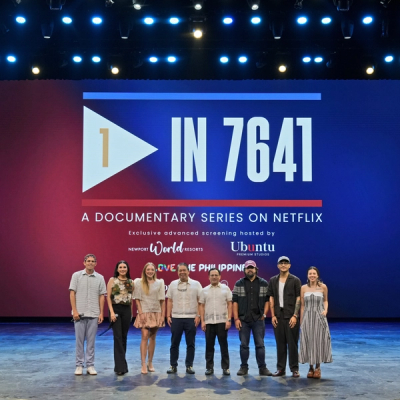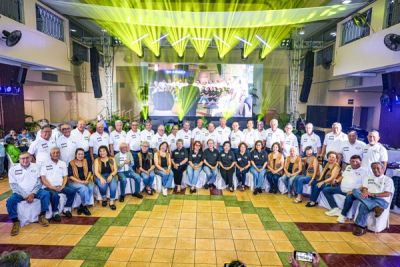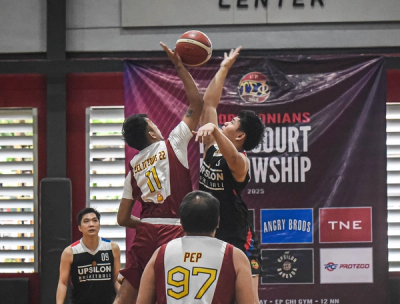Arts
From Bariloche to Buenos Aires: A Road Trip for the Ages
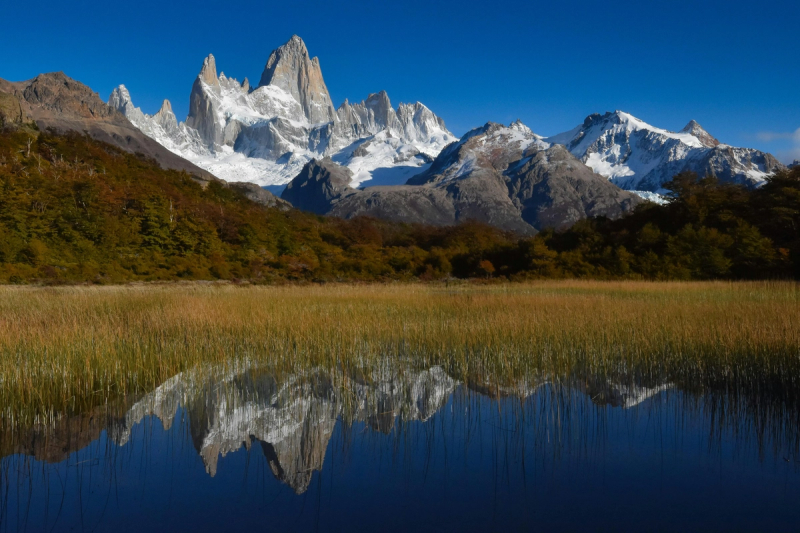
We left the strong, frigid winds of San Carlos de Bariloche at half past four in the afternoon in a cama bus bound for Argentina's capital, Buenos Aires--reputedly the most Europeanized city in the continent that earned for itself the appellation of "Paris of South America." To get there, we had to brace ourselves for a twenty-hour road trip, give or take a few minutes.
During the first hour, I looked out the window, not really seeing the dried brown hills dotting what must have been the vast Argentinian pampas (Editor’s note: The pampas are vast, flat, fertile grasslands found primarily in Argentina, as well as parts of Uruguay and southern Brazil) Instead, I was recounting in my mind what our group had experienced in Bariloche, a Swiss Alpine-like ski resort city nestled on the shores of Lake Nahuel Huapi. Being autumn, the place is buffeted by cold, biting winds coming off the lake—winds that make your whole body cry out for protection, from head to hands to toe.
As experienced as he is, Don Carlos arrived with his full winter regalia, including a seemingly overworn muffler that made him look every bit the Lothario he is reputed to be. Gari made good use of the bonnet he bought, woven by Peruvian hands in Cusco, though he carried it like one of Snow White’s cohorts. Bim, Joel, Gigi, and I came in ordinary yet warm bundles.
Traipsing through the pretty streets on our first night in search of a memorable dinner—bent on having the famed parrilladas of Argentina after a week of seafood in Valdivia—we settled on a place called Jauja. We feasted on medio-cooked bife—de lomo (tenderloin), de ojo (ribeye)—and sausages (chorizo and morcilla). Sated by one of the best meals of this sojourn, we trudged up the hilly path to our cozy hostel, Periko’s, which helped settle the high-calorie dinner we had just consumed.
The following day was a Sunday, and we trooped to the Bariloche Cathedral to hear Mass. The church, made of stone with a tall steeple, was filled with warm-hearted parishioners who offered what I felt were sincere signs of peace. Several Chilenas, albeit matronic to Gari’s hidden dismay, even invited us to a picture in front of the cathedral, encouraging us to pose while uttering the Spanish word “sonrieto.” It was incomprehensible to us at the moment, so we incanted “queso,” for obvious reasons. Much later, Don Carlos revealed that the word simply meant an invocation to smile—qué obvious!
As promised, for our last night in each destination we would have a special dinner, humorously dubbed by Gari and me as the despedida de soltera. So Gigi whipped up traditional Upsilon food—sautéed corned beef of the Libby’s kind straight from Walmart USA, with lots of potatoes and cabbage—accompanied by a couple of bottles of Malbec and, most importantly, Upsilon stories, topped by a hilarious one from Gari: the Legend of the Aauum. :)
Well-fed bodies and sated souls prepared for a night’s rest, knowing that the next day Gari and El IF would take the midday flight to Buenos Aires to ensure Gari was well-rested for his onward flight back to Manila via the US. We poor souls, meanwhile, would take the long bus ride to the capital. Yet deep down, the bus riders silently yelled: ¡Buenos Aires ya viene!
The radiantly yellow hue of the sun bathing the far hills slowly turned into a reddish tone as it set, drawing my attention to the beautiful transformation of colors until night finally fell around us, the quarter moon providing only a scant glimmer of light in the clear sky. After the modest repast—surprisingly including a hot lasagna-like entrée—I struck up a conversation with the only other traveler on the primer piso. In my pidgin Spanish and his broken English, we figured out that he was an Argentine International Master in chess with an FIDE rating above 2400. Leonardo Tristan, as he introduced himself, had just played and placed third in a semi-professional tournament in Bariloche, scoring five and a half out of a possible seven points. Joel whispered that it’s not every day you meet a chess master, much less one who knows Filipino greats like Eugene Torre and Wesley So. When he showed us the chess set he carried, Bim and I nearly challenged him to a game. We thought the wiser and retreated, enjoying instead the idea of what might have happened—perhaps taking his queen but still losing. With that thought, our drooping eyes begged for the only option left on this conveyance, and sleep we did.
I was awakened by bright rays of morning sun streaming through the curtains. The first sight was of seemingly endless verdant plains, dotted with pools of water on both sides of the road. No wonder the bovine residents love it here, and even less wonder their kind tastes so wonderful off the grill. Unlike the mountainous Andean countryside, the pampas may not possess comparable majesty, yet they give one a sense of freedom allowed by their vastness—much like being on the Pacific, except we were on an ocean of land.
In keen anticipation of our destination, we counted the waking hours left of the trip. Though long, I was comforted by the company of caring friends—and by the thought that soon I would be treading the same streets that Eva Duarte once did, perhaps finally understanding why Argentinians cried for her.
Otra vez, ¡Buenos Aires ya viene!
Con todo amor,
Tong Puno
About the Author
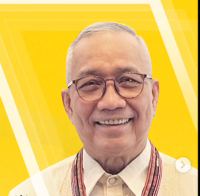
Tong Puno
Tong Puno is a co-founder and long-time managing partner of TBWA\Santiago Mangada Puno, one of the Philippines’ most awarded advertising agencies and a key part of the TBWA\Worldwide network. Over a career spanning roughly five decades, he helped steer TBWA\SMP’s business and finance operations while his partners led creative and production, building a reputation for Disruption®-led, globally recognized work. Puno has been honored with the Lifetime Achievement Award by the Creative Guild of the Philippines at the Kidlat Awards 2016 and the Industry Stalwart Award by the Ad Standards Council, recognizing his enduring contributions to the local industry and his role in upholding truth and ethics in Philippine advertising.
